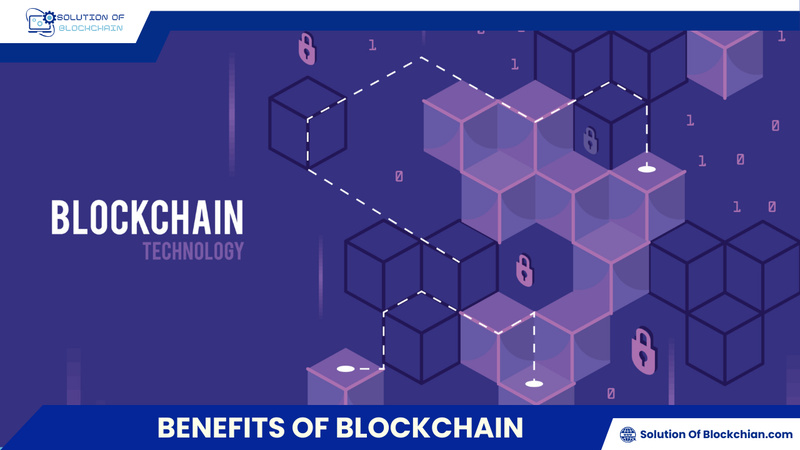Blockchain – a name that has become familiar in the digital age, known as the foundation technology for Bitcoin and a series of other breakthrough applications. But what are the real benefits of blockchain that make it the focus of attention of the technology world and global investors? Let’s explore the potential power of this technology and the great applications it brings.
What is Blockchain?
Imagine a massive digital ledger, open for everyone to view and record transactions. This is the simplest way to envision Blockchain. Essentially, Blockchain is a distributed database that functions as a shared “digital ledger” across multiple computers in a network. Each “page” in this ledger is called a block, containing encrypted transaction information and linked to previous blocks, forming an immutable chain of information.
The benefits of blockchain stem from this unique structure. Eliminating intermediaries allows parties to interact directly without needing a third party, providing superior security, transparency, and efficiency.
Types of Blockchain
Currently, there are three main types of Blockchain:
- Public Blockchain: Open to everyone; anyone can read, write, and validate transactions. Examples: Bitcoin, Ethereum.
- Private Blockchain: Restricted to a specific group of users, typically used within a business or organization.
- Permissioned Blockchain: Allows certain users access and permission to validate transactions. This is a hybrid of Public and Private Blockchain.
Each type has its advantages and disadvantages, suitable for different purposes.
How does Blockchain work?
To better understand the benefits of blockchain, we need to delve into its mechanism. When a transaction occurs, it is encrypted and placed into a block. This block is then validated by nodes in the network through complex algorithms. Once validated, the block is added to the Blockchain, and the transaction information is permanently recorded.
Blockchain’s security is ensured through encryption and “chaining.” Each block is linked to the previous one with a unique hash, forming an unforgeable chain of information. Any alteration to a block changes the hash and breaks the entire chain, ensuring data integrity.
Benefits of Blockchain
Superior security
- Blockchain is designed to resist attacks and data falsification. Encryption and data distribution across multiple nodes make attacking a Blockchain system extremely difficult. Each transaction is encrypted and linked to previous ones, forming an immutable chain.
- For example, in finance, banks are implementing Blockchain to prevent cyberattacks and financial fraud. According to a Deloitte report, Blockchain can reduce cybersecurity risks by up to 30%.
Absolute transparency
- All information on the Blockchain is public and accessible to anyone participating in the network. This enhances trust between parties, minimizes risks in transactions, and promotes accountability.
- This transparency benefit is widely applied in supply chains. Consumers can use Blockchain to trace product origins, from raw materials to production and distribution, ensuring authenticity and quality.
Optimal efficiency
- Blockchain automates processes, eliminates cumbersome paperwork, and minimizes manual intervention. This saves time, reduces costs, and enhances operational efficiency for businesses and organizations.
- McKinsey research shows that Blockchain can save the global logistics industry up to $100 billion annually by optimizing shipping and warehouse management.
Immutability
- Data on the Blockchain cannot be altered or deleted. This guarantees data integrity and builds user trust. In records management, Blockchain can store vital documents like diplomas, licenses, and contracts, ensuring authenticity and preventing forgery.
Benefits of Blockchain across industries
Benefits of Blockchain in finance – banking
- International payments: Blockchain enables fast, secure, and low-cost international money transfers compared to traditional methods. Ripple exemplifies Blockchain’s application in international payments, helping banks save costs and transaction time.
- Decentralized finance (DeFi): Blockchain is the foundation for DeFi development, offering transparent, accessible financial services without intermediaries. Popular DeFi applications include decentralized lending and borrowing, digital asset trading, and stablecoins.
- Asset management: Blockchain helps track and manage digital assets securely and efficiently.
- Anti-Money laundering (AML): Blockchain enhances transparency and transaction origin tracing, helping prevent money laundering.
Benefits of Blockchain in supply chain
- Product Origin Tracing: Walmart is a pioneer in applying Blockchain for food traceability, ensuring food safety and strengthening consumer trust.
- Warehouse and Logistics Management: Maersk and IBM collaborated to develop TradeLens, a Blockchain platform optimizing cargo shipping and global supply chain management.
Benefits of Blockchain in healthcare
- Medical Record Storage and Sharing: Estonia is the first country to implement Blockchain for nationwide electronic health record storage and sharing, empowering citizens with data control and facilitating information sharing with healthcare providers.
- Drug Research and Development: Blockchain facilitates secure and transparent medical research data sharing, fostering collaboration among researchers and accelerating new drug development.
Benefits of Blockchain in real estate
- Simplifying Buying, Selling, and Leasing: Blockchain reduces time and costs in real estate transactions, increasing transparency and security.
- Land Registry Management: Dubai is implementing Blockchain to build an electronic land registry system, preventing disputes and fraud.
Benefits of Blockchain in government and public administration
- Electronic Voting: Countries like Sierra Leone have piloted Blockchain for elections, enhancing transparency and preventing fraud.
- Identity Management: Blockchain provides a secure and reliable solution for digital identity management, preventing personal information theft.
The benefits of Blockchain are undeniable. This technology is transforming how we live, work, and interact. From finance and supply chains to healthcare and beyond, Blockchain unlocks new opportunities for sustainable development.
In the future, Blockchain is projected to grow with new applications and technological advancements. Embracing and implementing Blockchain will be key for individuals and organizations to thrive in the digital age.
Solution Of Blockchain hopes this article has helped you discover the benefits of blockchain, which is reshaping and driving new trends in the technological world. Stay tuned for more insightful information about Blockchain and the investment market.



